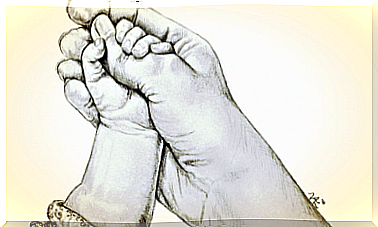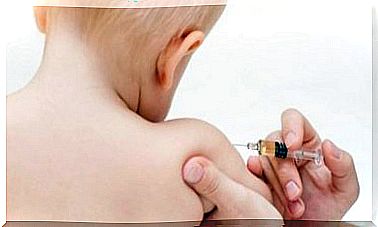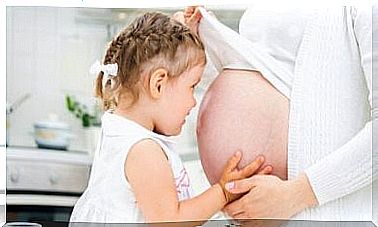What Is Your Best Diet After Childbirth?

After giving birth, you will probably want to get back the same figure you had before pregnancy. To do this, you need to rethink your postpartum diet. We’ll tell you everything you need to know about this.
When your beautiful baby is born, you may have noticed that you have put on a few extra pounds. If you want to get rid of them in a simple and fast way, we have put together here is a diet that can help you after the birth.
First of all, we have some good news. After giving birth, you should have lost between 5 and 8 kilos without effort.
You may be asking yourself, “How could I have lost so much weight?” Well, 3 to 4 kg is for the baby, 1 kg for the placenta, another almost 1 kg when the uterus goes back and 2 liters of fluid.
Foods that belong in your diet after childbirth
In this phase of your life, you need foods high in vitamins and minerals. Some of the vitamins and minerals you need are:
Magnesium
When you are deficient in magnesium, you are more likely to feel weak and tired. Therefore, some foods that are rich in magnesium can help you. You can eat are: asparagus, sunflower seeds, spinach and nuts.
Folic acid
To stay in good shape, you should include foods high in folic acid in your diet. Some of these are beans, broccoli, lettuce, nuts, bananas, oranges, grapes and strawberries.
Foods with iron
Taking iron supplements is common during pregnancy to prevent anemia. After giving birth, you need to replenish your iron stores with. You need to eat food with enough iron. Some of these foods are: red meat, watercress, kale, peas, oats, rice, bread, chickpeas and lentils.
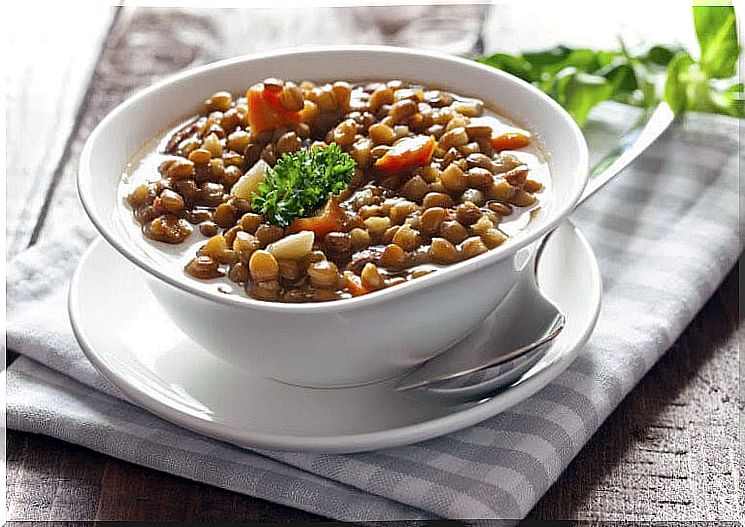
Calcium
To prevent demineralization of your skeleton and to produce enough milk, you need to get enough dairy products . These include milk, cream cheese, low-fat yogurt and other dairy products.
Menu for your diet after childbirth
To make it easier for you to follow these guidelines, we have put together two examples of menus:
First menu
Breakfast: two slices of bread with jam, a glass of skim milk or a portion of cereal with milk.
Snack: one serving of fruit and two slices of turkey.
Lunch: Fat-free broth and mashed potatoes or baked potatoes. You can also eat a portion of lean meat or fish and a portion of fruit.
Snack: a small bowl of fruit salad.
Dinner: a fruit and a portion of chicken with a baked potato or vegetable soup.
Second menu
Breakfast: a glass of skim milk, a serving of cereal and orange juice.
Snack: two slices of wholemeal bread with jam and low-fat yogurt.
Lunch: a portion of lean meat or fish with a portion of rice or wholemeal pasta. Another option could be a salad with sautéed or fresh vegetables with a little olive oil. For dessert, a low-fat yogurt or a portion of fruit.
Dinner: vegetable soup, or a vegetable omelette with chicken or fresh tuna. For dessert, either fruit or a low-fat yogurt.
Before going to bed: a small portion of cereal or porridge and a glass of skim milk.
Advice on following a postpartum diet
- To ensure that this diet is effective, you should take the following tips into account. If you have any problems, it is a good idea to contact a dietitian or nutritionist so that they can help you get a diet that is safe for you.
- You should include five fruits and vegetables a day in this diet. All of these will provide your body with vitamins, minerals and antioxidants.
- Distribute the food throughout the day so that you have five meals in total: breakfast, snacks, lunch, snacks and dinner.
- You should not skip any meals.
- Drink enough water, about 2 liters.
- Try to eat smaller products with refined sugar, such as chocolate, sweets, cakes and pastries.
- Avoid sweet drinks such as soft drinks.
- Eat all meat without skin.
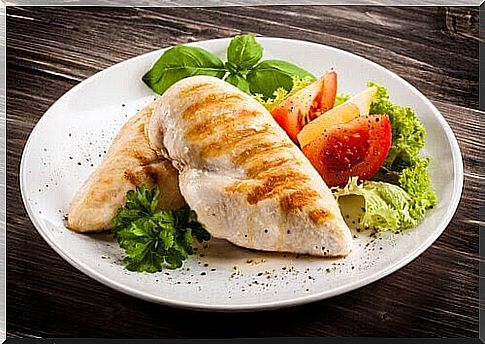
- Incorporate fish into your daily diet. It is full of protein.
- Exercise every day. The most practical thing is to walk. This will help you lose weight and give you more energy to take care of your baby.
- Limit foods high in fat, especially those with saturated fats such as red meat and sausages. Also limit fats from foods such as chips, sauces, butter and oils.
- Consume low-fat dairy products to reduce your fat intake.
- Reduce your salt intake, such as table salt or canned and ready-made food.
- Avoid caffeine, alcoholic beverages and carbonated beverages.
- You can take a vitamin and mineral supplement.
In conclusion, your diet during this stage should be healthy and well balanced. When you follow it, you take care of both yourself and your baby.


